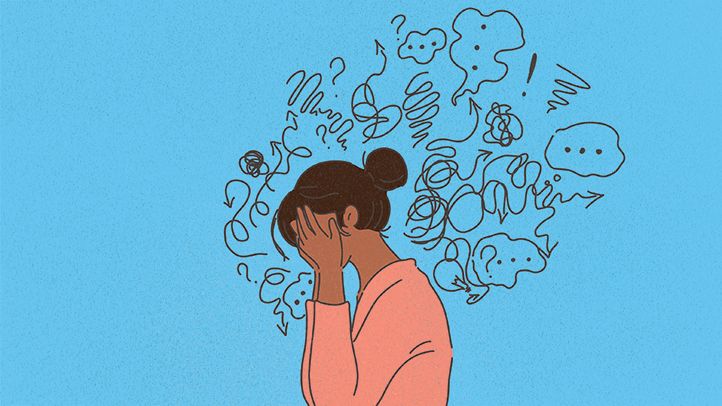What is anxiety?
You’ve probably heard about anxiety many times, but what does it actually mean to experience it? Anxiety is a common mental health problem that refers to being in a persistent state of worry or displaying excessive amounts of fear. Everyone worries about things now and again, but to suffer from anxiety means that worrying has a debilitating impact on your daily life.
Symptoms of anxiety
Symptoms of anxiety will vary depending on the disorder, but most anxiety conditions will involve several or most of the symptoms detailed below. The following symptoms will be most accurate in depicting people suffering from Generalised Anxiety Disorder (GAD).
Physical symptoms
- Feeling light-headed or dizzy
- Sweating or feeling hot
- Increased heart rate
- Panic attacks
- Gastrointestinal problems
- Rapid breathing or hyperventilation
- Nausea or painful stomach
- Aches and pains in your body
- Feeling weak and tired
- Insomnia
- Changes in sex drive
Mental symptoms
- Feeling nervous, irritable, or tense
- Low mood and depression
- Experiencing a sense of impending danger or fearing the worst
- Constantly worrying about things
- Needing reassurance from other people
- Feeling like everyone is watching you
- Derealisation: a form of disassociation where you feel like the world isn’t real or you’re not connected to it
- Depersonalisation: a form of disassociation where you don’t feel connected to yourself, as if you’re watching yourself from an outside perspective

What are the main types of anxiety?
As with every health issue, an accurate diagnosis is essential. A few common anxiety disorders include:
- Generalized anxiety disorder: A pattern of excessive worry about a variety of issues on most days for at least six months, often accompanied by physical symptoms, such as muscle tension, a hammering heart, or dizziness.
- Social anxiety disorder: Feeling significant anxiety in social situations or when called on to perform in front of others, such as in public speaking.
- Phobias: A particular animal, insect, object, or situation causes substantial anxiety.
- Panic disorder: Panic attacks are sudden, intense episodes of heart-banging fear, breathlessness, and dread. “It’s the feeling you’d have if you just missed being hit by a Mack truck — but for people with panic disorder there is no Mack truck,” says Dr. Beresin.
What causes this problem?
There’s not one obvious cause of anxiety, but it can be: genetics, childhood experiences and trauma, current life situation, drugs, alcohol & medication…
How can I cope with anxiety?
Breathing and mindfulness exercises, distracting yourself with friends, family or hobbies, using self-care strategies, exercising, writing in a diary, going to bed early, eating healthy, balanced meals, avoiding alcohol, drugs and caffeine, taking an online anxiety course.
Happy quotes!
- Don’t compare your life to others. There’s no comparison between the sun and the moon, they shine when it’s their time.
- Do not let the behavior of others destroy your inner peace.
- The happiness of your life depends upon the quality of your thoughts.
- It’s ok to be a glowstick; sometimes we need to break before we shine.
- One positive thought in the morning can change your whole day.
- Make happiness a priority and be gentle with yourself in the process.
- By being yourself, you put something wonderful in the world that was not there before.
- Focus on the step in front of you, not the whole staircase.
Visit our website for more advices.
Depression, in fact, has its own mechanism of occurrence. Check HERE to learn more.

